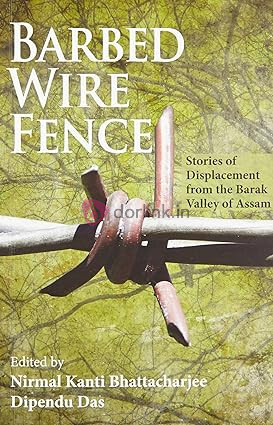Writer : No Name
Edited By : Nirmal Kanti Bhattacharjee & Dipendu Das
Compiled By : NA
Translated By : Nirupam Acharya
Publishers : Niyogi Books India
- Shipping Time : 10 Days
- Policy : Return/Cancellation?
You can return physically damaged products or wrong items delivered within 24 hours with photo/video proof.
Contact Customer Support for return initiation and receive return authorization via email. Securely package for return.
Refunds for eligible returns are processed within 7-10 business days via Bank Transfer.
Order cancellation allowed within 24 hours of placing it. Standard policy not applicable for undamaged/wrong product cases. Detailed info. - Genre : Translated Literature>Short stories and Folktales
- Publication Year : 2012
- ISBN No : 978-93-81523-29-2
- Binding : Flexibound
- Pages : 204
- Weight : 242 gms
- Height x Width x Depth : 8.5x5.5x0.5 Inch
If so, it will be notified
About the Book
The Great Migrations: Stories of Survival and Change
The Exodus: A Flight to Freedom
History is filled with tales of mass migrations, but few are as legendary as the Exodus of the Jews from Egypt. Led by Moses, they escaped oppression and embarked on a perilous journey toward liberation. As the biblical verse recounts:
"And Moses said, we will go with our young and with our old, with our sons and with our daughters, with our flocks and with our herds, will we go..."
This epic migration, marked by the dramatic parting of the Red Sea, became a timeless symbol of resilience and the human quest for freedom.
The Irish Potato Famine: Hunger, Despair, and Departure
While war and persecution have driven many migrations, nature has also played a cruel role in forcing people to leave their homes. In 19th-century Ireland, a devastating potato blight led to widespread famine. Between 1845 and 1851, over a million people perished, and millions more were forced to flee.
Ireland’s population plummeted from around 8.5 million in 1851 to just 4.3 million by 1921—a stark reminder of how fragile human settlements can be in the face of disaster.
The Endless Journey of Humanity
Migration is not just a historical phenomenon—it is an ongoing reality. Whether driven by war, famine, or climate change, people continue to seek new homes in search of safety, dignity, and opportunity. The stories of the past remind us that movement is an intrinsic part of human survival.


